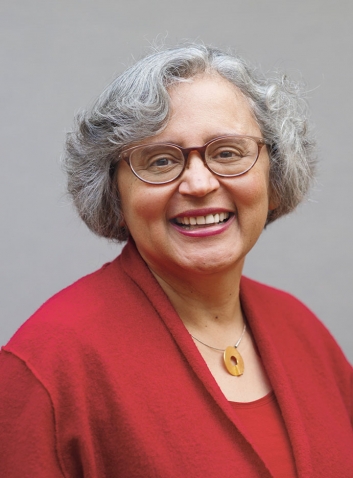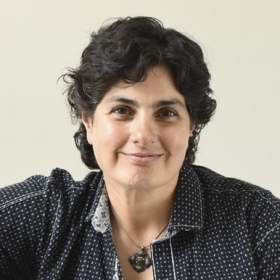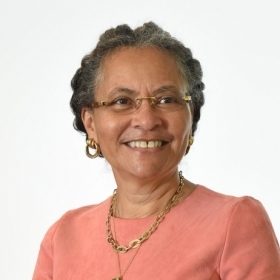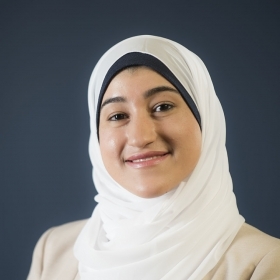Cecilia Conrad ’76 pores over reams of files of extraordinary writers, scientists, teachers, and entrepreneurs, creative people who’ve set out to make the world a better place. One day she reads about an author who plans to write an experimental book about children crossing the border into the U.S. On another, it’s a designer creating tools and furniture to help kids with disabilities. It’s Cecilia’s job to help decide which ones will receive more than half a million dollars.
As managing director at the MacArthur Foundation in Chicago, Cecilia heads up the prestigious MacArthur Fellows Program, which distributes so-called “genius grants.” Each year after a lengthy nomination and review process, several dozen fellows with outstanding talent from across the United States take home $625,000 in no-strings-attached seed money for their intellectual, social, and artistic endeavors. Cecilia leads the process, and she’s developed a keen eye for exceptional creativity and the potential for more.
“I get really excited and joyful, and I take a great sense of accomplishment from uplifting other people and their ideas,” Cecilia says.
Since joining the foundation in 2013, Cecilia has helped direct millions of dollars toward creative endeavors. “We try to find people right before they reach the top of the parabola,” she says, “people we think the program will help accelerate.”
Over the years, she’s found that a disproportionately large number of recipients are graduates of liberal arts colleges and immigrants. Many fellows also work across disciplines, and they tend to move often, perhaps drawn to places where other creatives are working, she says. Four Wellesley graduates are among the MacArthur fellows ranks, but before Cecilia’s time.
In addition to the fellows program, Cecilia founded and is the CEO of Lever for Change, an affiliated nonprofit that connects philanthropists with opportunities for social change. Every three years, its 100&Change competition gives a $100 million grant to help solve a pressing social issue. In 2017, the money went to Sesame Workshop and the International Rescue Committee to design programming for Syrian children impacted by the refugee crisis.
Cecilia went to the MacArthur Foundation from academia. After earning her B.A. in economics at Wellesley and Ph.D. in economics from Stanford, she taught at Barnard College and Duke University. She later served as vice president and dean of faculty at Scripps College and vice president for academic affairs and dean of the college at Pomona. She’s also written extensively on the effects of race and gender on economic status, and her articles have appeared in academic journals and in publications like Time and the Washington Post.
Cecilia was intrigued when she heard about the MacArthur Foundation position from a search consultant. Switching from academia to philanthropy “was a challenge,” Cecilia says, “but it’s also reenergized me.”
Her interest in civic engagement and making an impact was piqued early on. Growing up black in Dallas, Texas, she saw her mother sit in on lunch counters, then watched her on the news. Cecilia’s father, a surgeon and one of a handful of black doctors in the hospital where he worked, was also the first black person elected to citywide office in Dallas.
“My parents were politically active in the Civil Rights movement,” she says, “but Wellesley really enforced that. There was this sense of public engagement and civic responsibility.”
Studying economics at Wellesley was fortuitous, says Cecilia, because on campus it didn’t occur to her that economics was a male-dominated field at the time. In a coed environment, she might have felt defeated and given up. At Wellesley, she thought she would work for an aid agency. “In a way, I’ve come around full circle,” she says.
Perhaps the toughest part of her current role is choosing among the slate of accomplished nominees. Sifting through documents illustrating their career histories can also be intimidating. “It can make you feel a little inadequate,” Cecilia says. But she wouldn’t trade the responsibility and feeling inspired every day. “It’s thrilling,” she says.








We ask that those who engage in Wellesley magazine's online community act with honesty, integrity, and respect. (Remember the honor code, alums?) We reserve the right to remove comments by impersonators or comments that are not civil and relevant to the subject at hand. By posting here, you are permitting Wellesley magazine to edit and republish your comment in all media. Please remember that all posts are public.